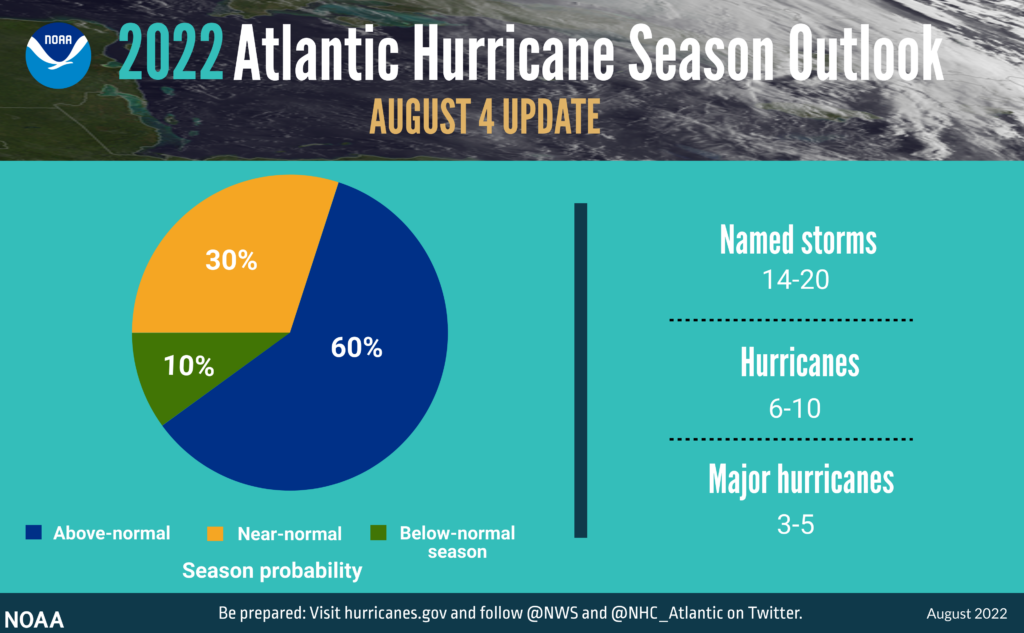A month has gone by with no tropical activity in the Atlantic basin, which is nothing unusual for this time of year. But that's likely to change soon.
Forecast updates from both the National Oceanic and Atmospheric Administration (NOAA)1 and scientists at Colorado State University (CSU)2 lowered projected numbers slightly but are still confident overall activity will be above normal this season.

As of August 4, there had been no Atlantic-born hurricanes and only three tropical storms. The 30-year average first date of a hurricane is August 11, and the fourth tropical storm of the season typically forms by August 153. History tells us that about 90% of the season's hurricane activity is still yet to come.
So now is a great time to review your hurricane continuity plan, and here are three reminders to consider.
1. Prepare for Impacts, not a Seasonal Forecast
The phrase "it only takes one" is often used by emergency managers and meteorologists to dissuade the public from reacting to the hype of a seasonal forecast. Your emotional energy is better spent on assessing the risk to your assets and preparing for a storm's impacts than worrying about a long-range outlook.
2. It Doesn't Take a Hurricane to Cause Significant Loss
Hurricanes may get all the media attention, but tropical storms can be just as costly. Even a "no name" tropical system such as the one that hit South Florida in early June can flood businesses or cause tornadoes. The key to avoiding a surprise is using weather data that provides clarity and accuracy on specific hazards, not just a forecast.
3. Know What Data to Trust, and When to Act on It
A common challenge when a hurricane is approaching is information overload. Preparing yourself mentally now can help you make more confident and effective decisions when a storm is staring you in the face. The decision-makers guide linked below can help you apply credible data to your situation and know when to act on it.
No tropical storms are expected to develop in the Atlantic basin over the next five days, according to Thursday's tropical outlook from the National Hurricane Center. However, forecasters at CSU have identified signals for a potential increase in tropical activity around the middle of August. This would be consistent with climatological records since 1851, which reveal that nearly twice as much activity occurs during the last ten days of August compared to the first ten days.
The weather data products referenced in the story links above are available in the Baron Weather API or for use by emergency response personnel in the Baron Threat Net web application. Baron experts will also be standing by for decision support all hurricane season long.
2 EXTENDED-RANGE FORECAST OF ATLANTIC HURRICANE ACTIVITY FOR 2020 (colostate.edu)
